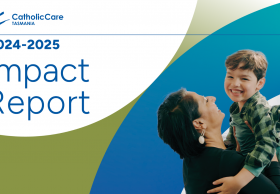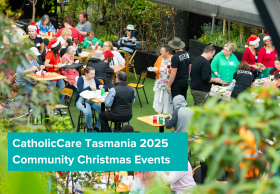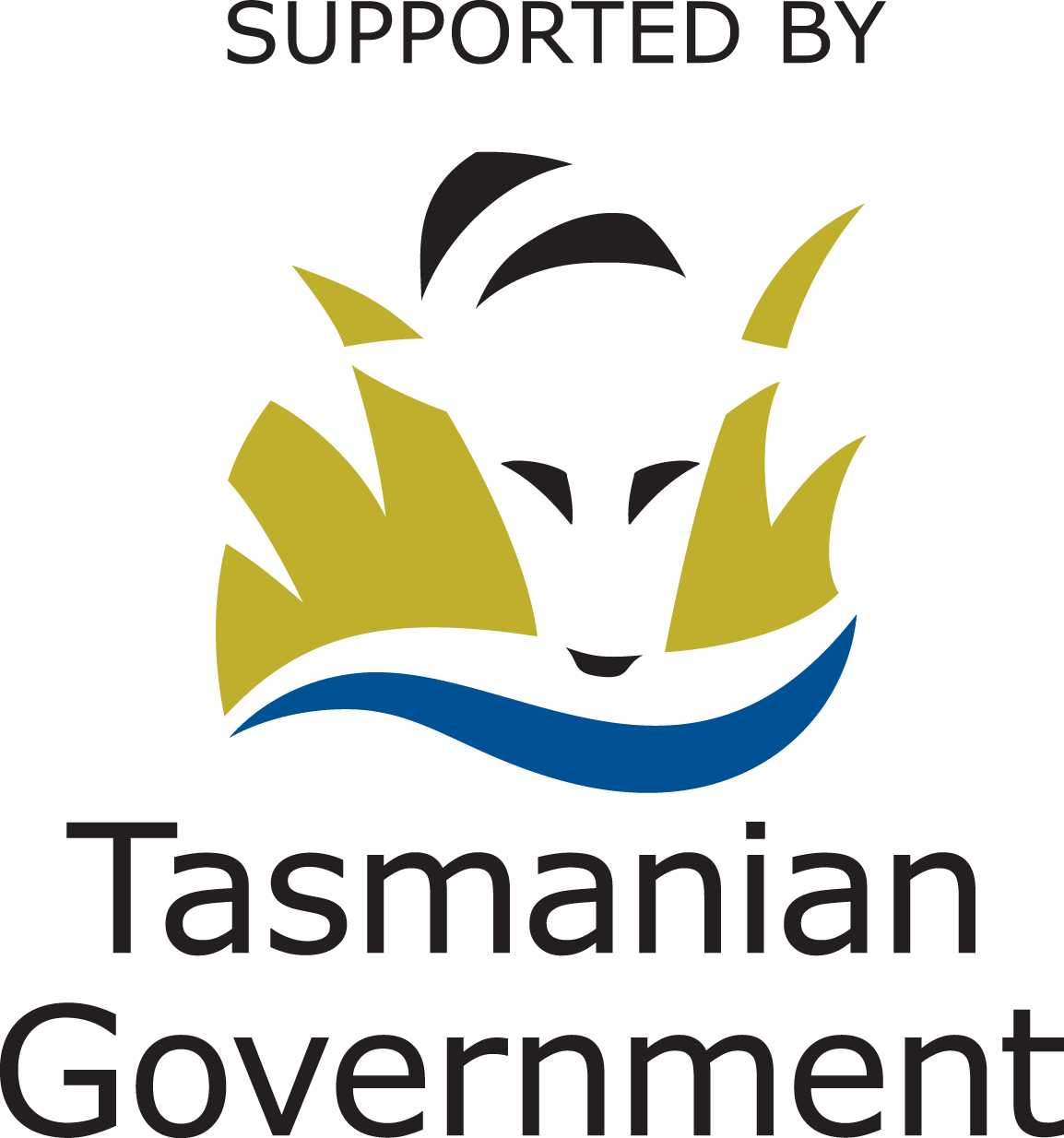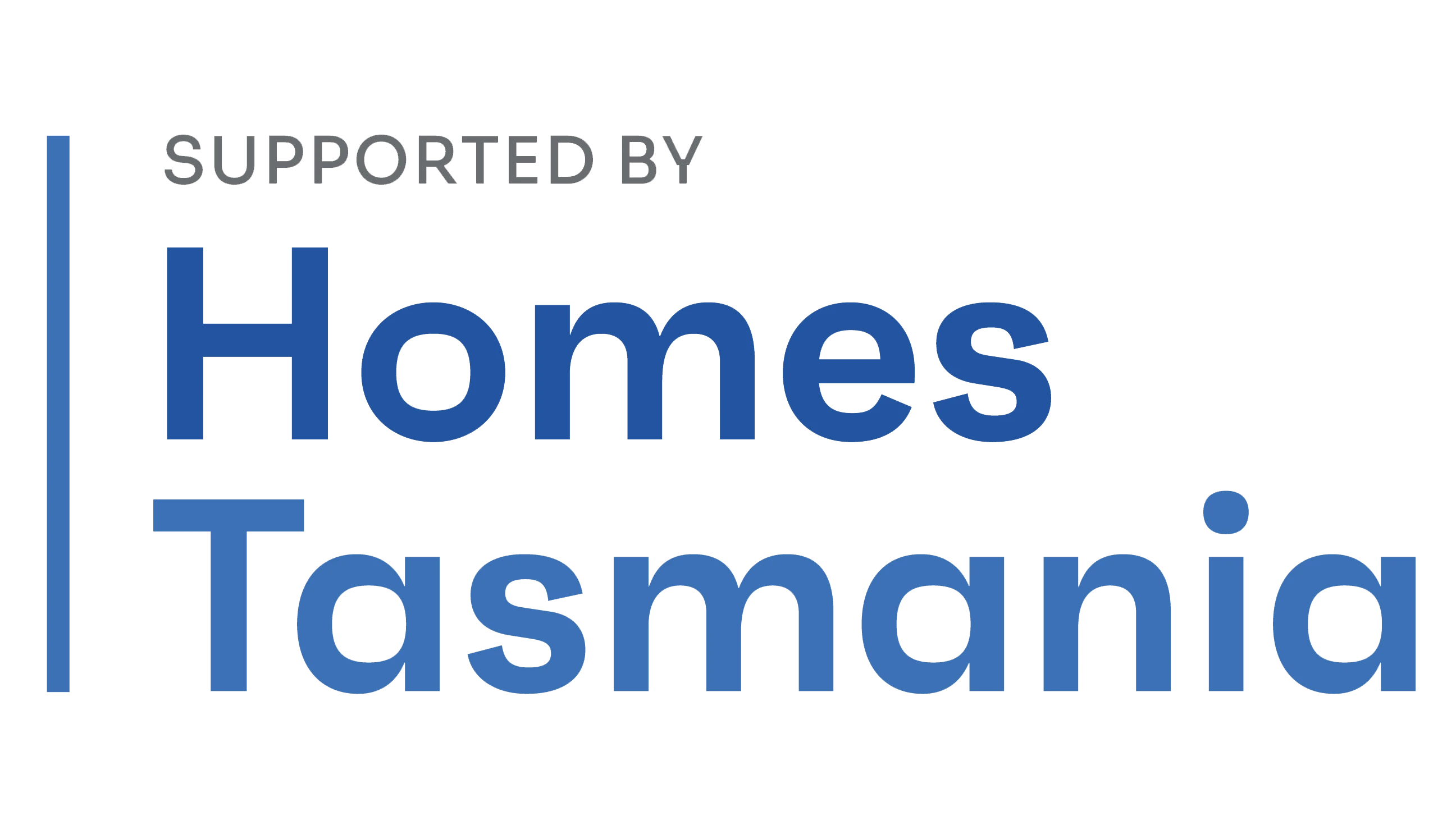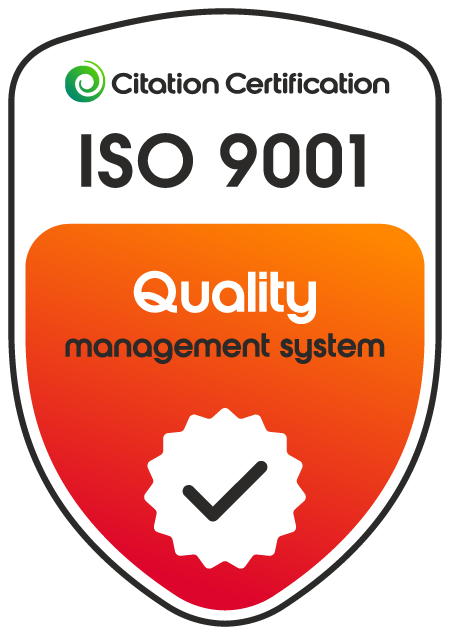Teaching protective behaviours and educating families is paramount in safeguarding children, according to CatholicCare Early Learning and Care Coordinator Mia Clark.
With one in four children in Australia experiencing sexual abuse, child safety and education is a widespread community concern.
“It is such a big wide world out there,” she said.
“When you see the statistics, you will realise the importance of teaching your children protective behaviours and making yourself aware of when to be concerned and what behaviours to look for. You have to fight that idea that ‘I know my kid, and I would know if something was wrong’.”
CatholicCare is hosting a series of education sessions for staff, parents, and children, aimed at providing families with information to teach their children safe, protective behaviours.
A part of the organisation’s commitment to safeguarding children and educating families, Mia said the significance of open discussions with parents and guardians had become clear.
“We have had one information session already that engaged Laurel House to facilitate content regarding protective behaviours parents can teach their children,” she explained.
“This included how to have conversations with kids around their body, how to respond to inappropriate behaviour, grooming red flags and behaviours to look for, and how to respond to disclosures of sexual harm.”

As a mother herself, Mia said she had found the session both confronting and eye-opening.
“We can wrap our kids in as much cotton wool as we want, but unfortunately, we need to educate our children on how to be safe and protective behaviours,” she said.
“But more than that – we need to be educated ourselves.”
Mia said there are many natural opportunities to support children in developing protective behaviours.
“Before your child can even talk, if they don’t want a hug or kiss from yourself or another family member do not force them to do so,” she said.
“If your child doesn’t want to be tickled, do not force it. If you are forcing your child to do these things, you are teaching them they don’t have a say what happens to their body. Instead, reinforce that it is okay say no.”
It is also important to know what to look out for, and how to respond to what might be a disclosure from a young person.
“This young child may not be your own,” Mia explained.
“It could be a child who trusts you and wants to be heard.”
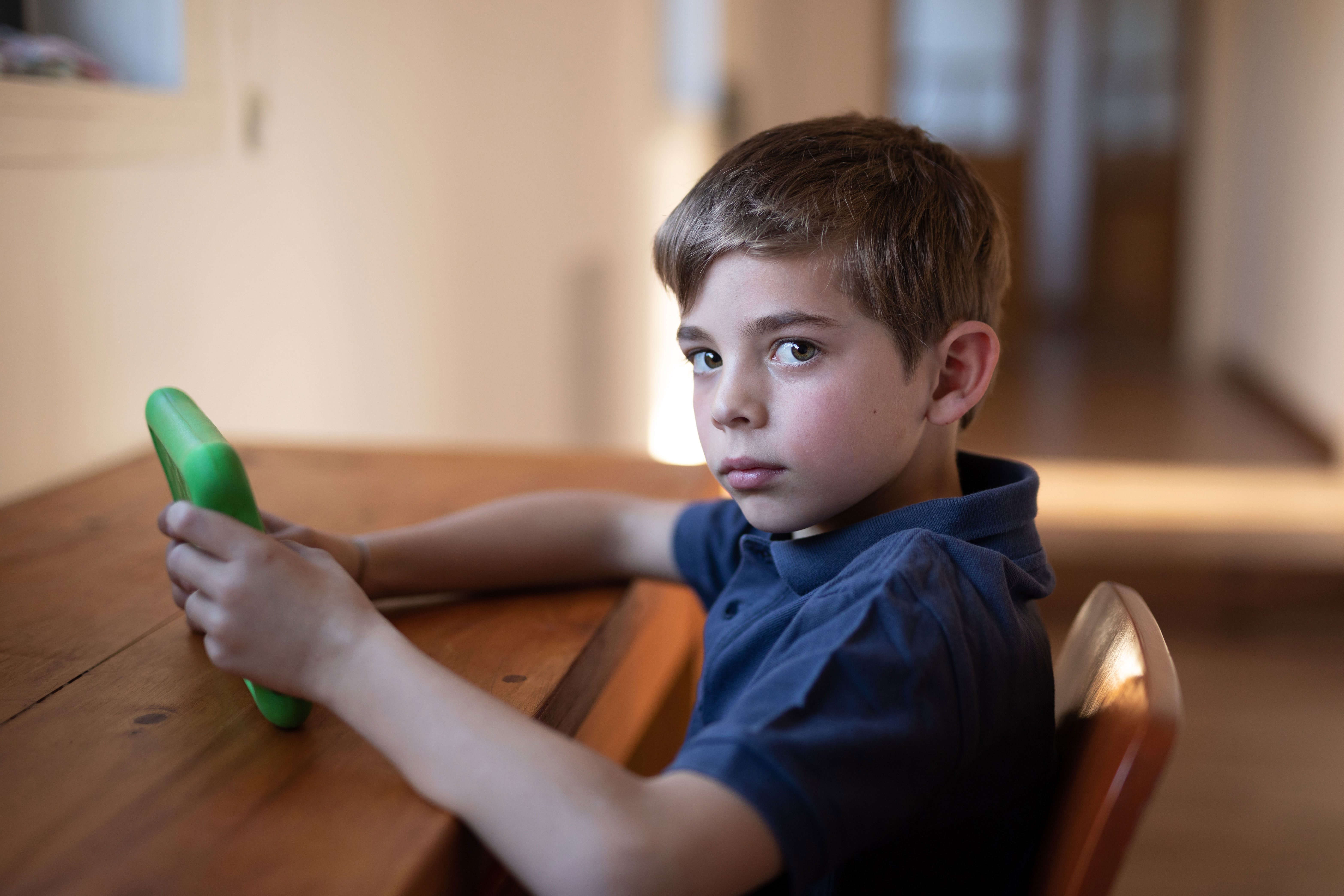
Future education sessions will include content created specifically for children of all ages.
“We have liaised with Bravehearts, who will be holding numerous shows,” Mia said.
“These shows teach young children essential personal safety skills and knowledge using age-appropriate language, song and dance.”
A parent and guardian session held by the Australian Federal Police in October will focus on cyber safety.
“A lot of what we learned was that it is not only face to face situations we need to be aware of, but online, especially in the games our kids are playing,” Mia explained.
“I am trying to get everyone involved in these discussions. It is that important.”
This year National Child Protection Week will continue to champion the message ‘Every child in every community needs a fair go’.
This message captures the essence of National Child Protection Week which aims to promote a safe and supported life for every child, now and into the future.
At CatholicCare, we support National Child Protection Week.
It's not something we simply talk about: The care of children and vulnerable people in our community is deeply embedded in our culture.
Each and every day our staff are improving the lives of children in our care, through the provision of counselling, Early Learning and Care, housing and accommodation, and multicultural services.
Other news you may be interested in
Teaching protective behaviours and educating families is paramount in safeguarding children, according to CatholicCare Early Learning and Care Coordinator Mia Clark.
With one in four children in Australia experiencing sexual abuse, child safety and education is a widespread community concern.
“It is such a big wide world out there,” she said.
“When you see the statistics, you will realise the importance of teaching your children protective behaviours and making yourself aware of when to be concerned and what behaviours to look for. You have to fight that idea that ‘I know my kid, and I would know if something was wrong’.”
CatholicCare is hosting a series of education sessions for staff, parents, and children, aimed at providing families with information to teach their children safe, protective behaviours.
A part of the organisation’s commitment to safeguarding children and educating families, Mia said the significance of open discussions with parents and guardians had become clear.
“We have had one information session already that engaged Laurel House to facilitate content regarding protective behaviours parents can teach their children,” she explained.
“This included how to have conversations with kids around their body, how to respond to inappropriate behaviour, grooming red flags and behaviours to look for, and how to respond to disclosures of sexual harm.”

As a mother herself, Mia said she had found the session both confronting and eye-opening.
“We can wrap our kids in as much cotton wool as we want, but unfortunately, we need to educate our children on how to be safe and protective behaviours,” she said.
“But more than that – we need to be educated ourselves.”
Mia said there are many natural opportunities to support children in developing protective behaviours.
“Before your child can even talk, if they don’t want a hug or kiss from yourself or another family member do not force them to do so,” she said.
“If your child doesn’t want to be tickled, do not force it. If you are forcing your child to do these things, you are teaching them they don’t have a say what happens to their body. Instead, reinforce that it is okay say no.”
It is also important to know what to look out for, and how to respond to what might be a disclosure from a young person.
“This young child may not be your own,” Mia explained.
“It could be a child who trusts you and wants to be heard.”

Future education sessions will include content created specifically for children of all ages.
“We have liaised with Bravehearts, who will be holding numerous shows,” Mia said.
“These shows teach young children essential personal safety skills and knowledge using age-appropriate language, song and dance.”
A parent and guardian session held by the Australian Federal Police in October will focus on cyber safety.
“A lot of what we learned was that it is not only face to face situations we need to be aware of, but online, especially in the games our kids are playing,” Mia explained.
“I am trying to get everyone involved in these discussions. It is that important.”
This year National Child Protection Week will continue to champion the message ‘Every child in every community needs a fair go’.
This message captures the essence of National Child Protection Week which aims to promote a safe and supported life for every child, now and into the future.
At CatholicCare, we support National Child Protection Week.
It's not something we simply talk about: The care of children and vulnerable people in our community is deeply embedded in our culture.
Each and every day our staff are improving the lives of children in our care, through the provision of counselling, Early Learning and Care, housing and accommodation, and multicultural services.
Other news you may be interested in
Other news

